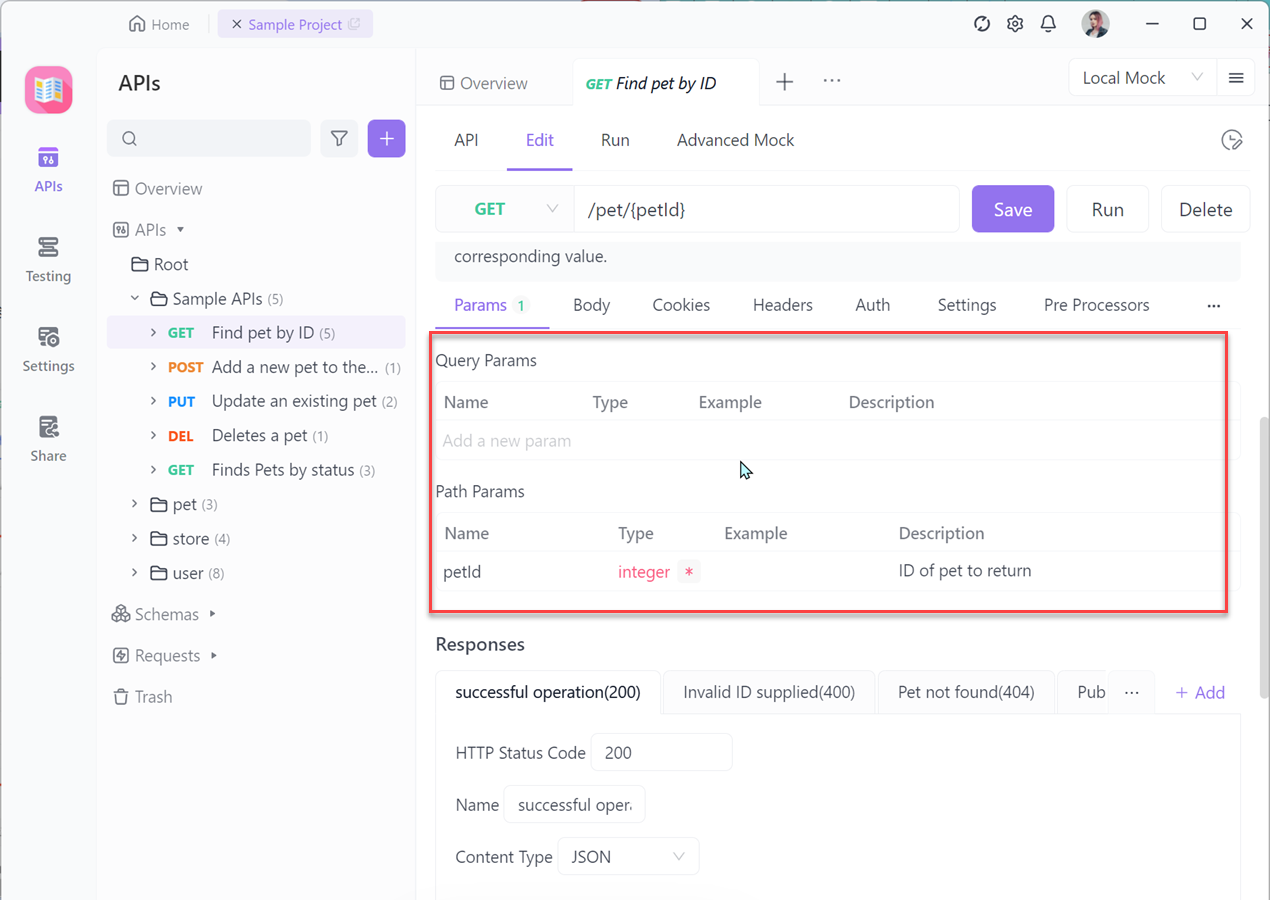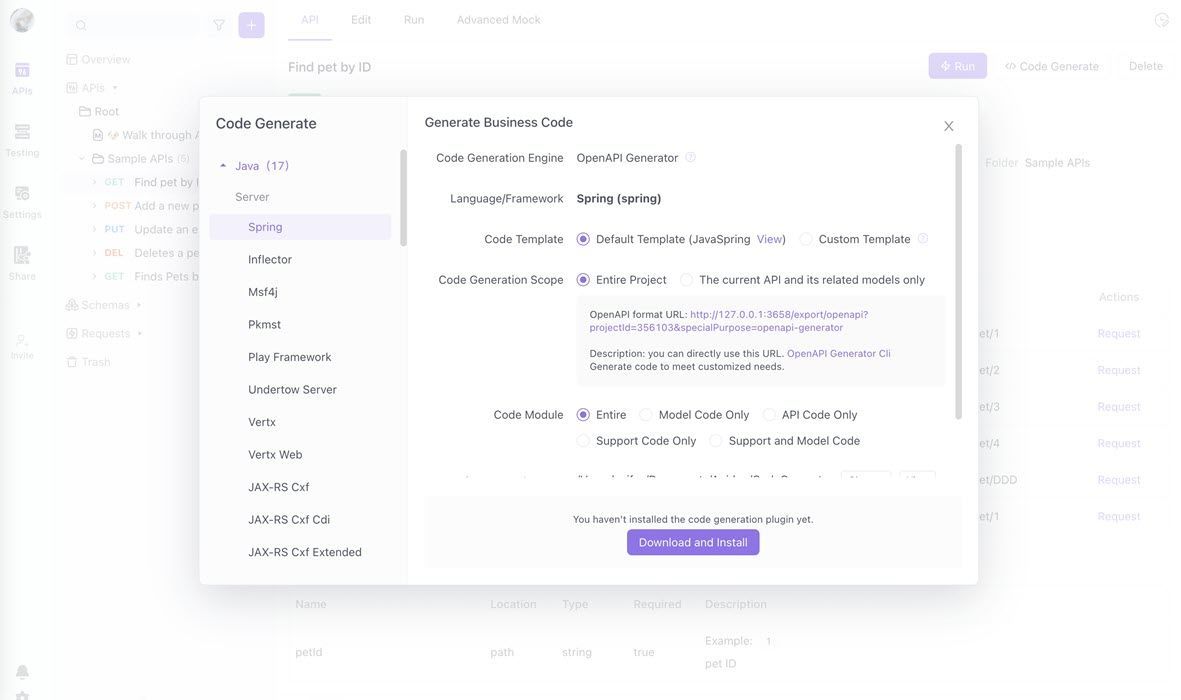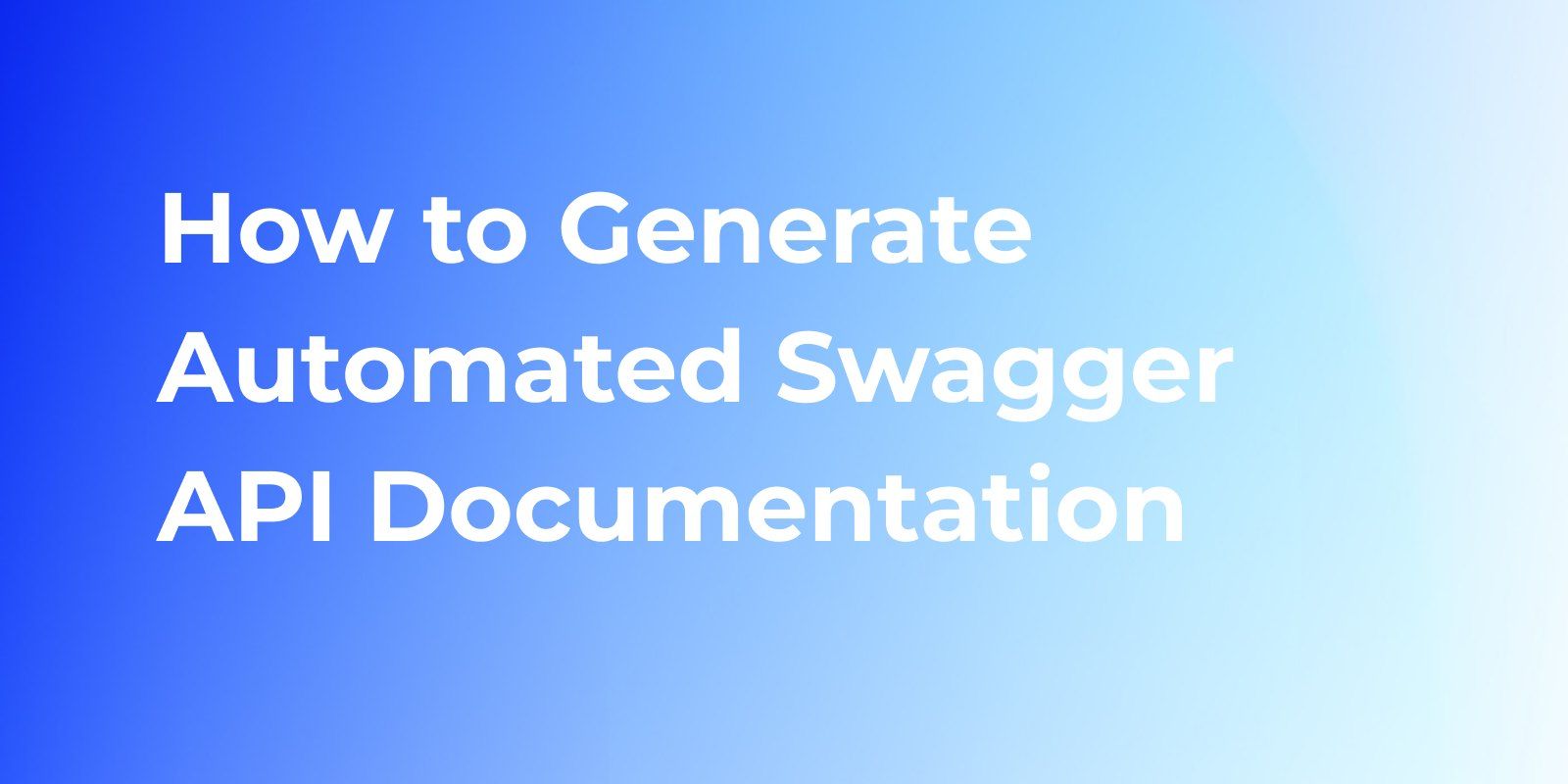11 Best Open-Source API Documentation Tools
Explore the power of open-source API documentation generators. From Swagger to Apidog, these API documentation generators are tools that automatically generate documentation for API.
API documentation serves as more than just code explanations; it acts as a bridge for communication between developers and developers, as well as developers and users. Explore the power of open-source API documentation generators.
From Swagger to Apidog, these API documentation generators are tools that automatically generate documentation for an application programming interface (API). These tools help developers and technical writers to create comprehensive and well-structured documentation for APIs, making it easier for users to understand and utilize the functionality provided by the API.
What is API Documentation
API documentation is essential for developers who want to integrate their applications with an API. It serves as a reference guide that explains how to interact with the API, including details about the available endpoints, request and response formats, authentication requirements, error handling, and more. Without proper documentation, developers may struggle to understand and use the API effectively, leading to errors and inefficiencies in their integration efforts.
Traditionally, API documentation was created manually, which could be a time-consuming and error-prone process. However, with the emergence of API docs generators, developers and technical writers can automate this task and generate high-quality documentation with minimal effort.
Open-source API docs generators are particularly popular because they are freely available and can be customized according to specific requirements. These generators are typically built using popular programming languages like Python, JavaScript, or Ruby, and often leverage existing frameworks and libraries to simplify the documentation generation process.
By using open-source API docs generators, developers and technical writers can save time and effort by automatically generating documentation from source code annotations or configuration files. These generators can parse the source code and extract relevant information about the API endpoints, request and response formats, and other details. They can then generate documentation in various formats, such as HTML, Markdown, or PDF, making it easy to publish and distribute the documentation.
In addition to saving time, the open-source API documentation generator offers several benefits. They ensure consistency in the documentation by automatically generating a standardized format and layout. They also make it easier to keep the documentation up to date, as any changes made to the source code can be automatically reflected in the generated documentation.
11 Best Open-Source API Documentation Generators
When it comes to choosing an API docs generator, there are several options available. In this section, we will compare and discuss eight popular open-source API documentation generators, highlighting their key features and functionalities.
Swagger
Swagger is one of the most widely used open-source API documentation generators. It allows developers to design, build, and document their APIs with ease. Swagger provides a user-friendly interface for creating and editing API documentation, and it supports various programming languages.

Key Features:
- User-friendly interface for API design and documentation
- Support for various programming languages
- Ability to define endpoints, request/response formats, and authentication methods
- Interactive API exploration and testing tools
Apidog
Apidog is the latest and powerful API developer tool, not only for documentation generators. In the API docs aspect, it stands out with its comprehensive and innovative set of features, designed to streamline every aspect of API development, documentation, and management. With Apidog, developers can take their API projects to the next level by leveraging its advanced capabilities.
Key Features:
- Online API Documentation: Apidog offers a robust online platform that simplifies API development, testing, and management. It enables developers to create and maintain detailed documentation for their APIs with ease.
- Interactive Documentation: The generated documentation follows the OpenAPI and JSON Schema standards and provides in-depth information about endpoints, request parameters, response data, and more. Apidog's documentation is not just static text; it includes interactive elements such as a server testing environment and live request/response examples.

- Real-time Updates: Changes made to the API are instantly reflected in the online documentation, ensuring that developers always work with the latest information. This feature enhances collaboration and reduces the chances of outdated documentation.
- Code Generation: Apidog goes beyond documentation by offering automatic code generation. It produces code snippets for a vast range of programming languages and frameworks, saving developers valuable time and effort. These code templates can be easily customized to align with specific project requirements.

- Customization Options: Developers have the freedom to tailor the documentation to their exact needs. Apidog allows customization of documentation styles, layouts, and other visual elements to match the project's branding and aesthetics.
- Import/Export Functionality: Apidog prioritizes integration within the API ecosystem. It facilitates smooth data exchange by supporting export in various formats such as OpenAPI, Markdown, and HTML. The ability to import data from sources like OpenAPI, and Postman simplifies project migration and collaboration.

- Efficient Collaboration: Apidog serves as a collaborative hub for development teams. By providing a centralized location for API documentation, it enhances communication, reduces confusion, and promotes efficient teamwork.
- User-friendly Interface: Apidog boasts an intuitive and user-friendly interface that caters to developers of all skill levels. Its streamlined workflows and intuitive controls make API documentation and management accessible to both beginners and experts.

ReDoc
ReDoc is a free and open-source documentation tool that supports OAS 2.0 and OAS 3.0. Using ReDoc, businesses can quickly publish great-looking interactive API documentation online. Its user-friendly interface and customizable design make it easy to create and manage documentation that is clear, concise, and visually appealing.
Website: https://redocly.com/

Key Features:
- Easy Navigation - The customizable navigation bar and search box enable users to quickly find the information they need.
- Stylish & Responsive - The good-looking theme is fully responsive, working well on any screen size or browser. Additionally, you can customize fonts, change colors, and easily add a logo.
- Flexible Deployment - ReDoc can run in your browser, but it's also available as a Docker image, a React component, or a command-line tool.
DapperDox
DapperDox is an open-source OpenAPI renderer that works with both OAS 2.0 and OAS 3.0.
Key Features:
- Integrate Markdown Content - DapperDox enables users to combine their OpenAPI Specification with diagrams created using GFM (GitHub Flavored Markdown).
- API Explorer - DapperDox's API explorer enables users to experiment from within the API documentation.
- Good Documentation - The DapperDox documentation is clearly written and helpful for new users.
Theneo
Theneo is an easy-to-use tool for generating documentation. It allows developers to eliminate manual documentation efforts with our AI-generated descriptions and summaries. It boasts a Notion-like user interface which makes it easy to adopt if you are familiar with Notion. It also automatically converts your requests into multiple programming languages, creating a central hub for your APIs.
Website: https://app.theneo.io/

Key Features:
- Ease of Use - Theneo focuses on being user-friendly for both developers and non-developers alike, making it easy to import API collections, analyze documentation usage, and receive feedback from readers or API consumers.
- Integrations - Theneo integrates with Swagger, Postman, and GitHub, streamlining your documentation workflow.
Sphinx
Sphinx is a powerful open-source documentation generator that supports multiple programming languages. It is widely used in the Python community and offers a range of features for creating professional-looking API documentation. Sphinx also supports various output formats, including HTML, PDF, and ePub.
Website: https://www.sphinx-doc.org/
Key Features:
- Wide language support, commonly used for Python
- Extensive theming and customization options
- Output formats including HTML, PDF, ePub
- Automatic cross-referencing and indexing of documentation elements
Javadoc
Javadoc is a documentation generator specifically designed for documenting Java code. It extracts comments and annotations from the source code to generate API documentation. Javadoc is widely used in the Java community and provides extensive support for documenting Java APIs.
Website: https://javadoc.io/
Key Features:
- Specifically tailored for Java documentation
- Extracts comments and annotations from Java source code
- Generates HTML-based documentation
- Detailed class/method/field documentation, including parameters, return values, exceptions
DocFX
DocFX is an open-source API documentation generator developed by Microsoft. It supports multiple programming languages and provides a rich set of features for creating and publishing API documentation. DocFX also supports customizable templates, allowing developers to create documentation that matches their project's branding.
Key Features:
- Developed by Microsoft
- Support for multiple programming languages
- Rich feature set including customizable templates
- Ability to create documentation matching project branding
- Publishes documentation as a website or other formats
Doxygen
Doxygen is a popular open-source documentation generator that supports multiple programming languages, including C++, Java, and Python. It can generate various output formats, including HTML, PDF, and LaTeX. Doxygen uses special comments in the source code to generate API documentation.
Key Features:
- Multi-language support, including C++, Java, Python
- Uses specially-formatted comments to generate documentation
- Generates various output formats including HTML, PDF, LaTeX
- Handles documentation for classes, methods, variables, and more
Slate
Slate is an open-source API documentation generator that focuses on simplicity and ease of use. It provides a clean and responsive interface for creating and editing API documentation. Slate also supports Markdown syntax, making it easy to write and format documentation.
Key Features:
- Emphasis on simplicity and user-friendliness
- Responsive and clean interface
- Supports Markdown for writing documentation
- Provides an interactive API console for testing endpoints
- Allows customization of styles and appearance
Docusaurus
Docusaurus is an open-source documentation generator developed by Facebook. It is designed for creating documentation websites and supports multiple programming languages. Docusaurus provides a modern and customizable template for creating API documentation websites.
Key Features:
- Developed by Facebook
- Designed for creating documentation websites
- Supports multiple programming languages
- Modern and customizable templates
- Built-in search functionality and versioning support
Each of these open-source API documentation generators has its own strengths and weaknesses. The choice of which one to use depends on various factors, such as the programming language used, the desired output format, and the specific requirements of the project. It is important to carefully evaluate the features and functionalities of each generator to choose the one that best suits your needs.
Conclusion
In the realm of open-source API documentation generators, we've explored eight powerful options, each catering to unique needs. However, Apidog stands out as a compelling choice. With features like online interactive documentation, real-time updates, code generation, and easy customization, Apidog redefines API development. Its intuitive interface and efficient collaboration tools make it a valuable asset. In a world where clear and well-documented APIs are crucial, Apidog emerges as a forward-looking solution that simplifies workflows and enhances productivity.



